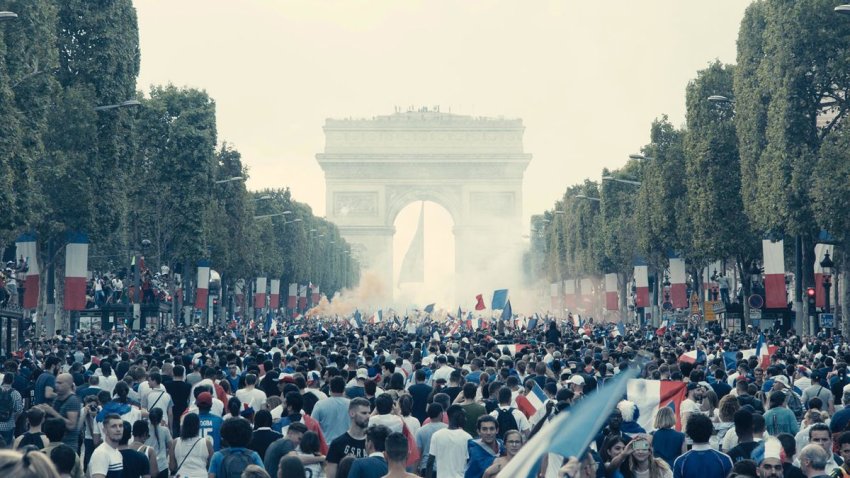
This film was released in France about six months before the Black Lives Matter movement swept the globe. However, it expresses the BLM spirit perfectly.
It is an in-your-face depiction of the oppression of those living in the poor housing towers surrounding Paris, and their righteous fury. Ironically, it opens with the national unity of the 2018 World Cup victory, in which all classes were swept up.
Filmaker Ladj Ly lives in Montfermeil, where the film is set. The plot is based on real events of police violence and community response, including those that he witnessed and filmed in 2005.
Ironically, Montfermeil is where Victor Hugo lived when he wrote his classic 1862 novel about the oppression of the poor, from which the film draws its name. Not much has changed in the years in between.
The plot uses a standard trope of a new cop, Stéphane Ruiz (played by Damien Bonnard) transferring into a hard-bitten team in the struggling suburb. Through the eyes of the new starter in his first few days, the audience witnesses the dysfunction of the police, their casual violence and misogyny.
The police don’t control the community so much as corruptly manage the power plays between conflicting criminal groupings. But obnoxious harassment of youth is constant.
What could go wrong in a few days? Quite a lot!
Ladj Ly learnt filmmaking in the Kourtrajmé collective and in 2018 set up a film school by the same name in Clichy-sour-Bois and Montfermeil. For Les Misérables, he recruited locals, most who play themselves alongside experienced actors, making the separation of art and reality gossamer thin.
To save money, he filmed the final events in the building where he lives. He knocked on all his neighbours’ doors and got their permission to totally trash the place – as long as he cleaned it up afterwards.
The real-life feel of this film and its fluid steadycam cinematography bring the viewer in close. Almost without realising it, you become steadily more involved with the drama as the intensity grows.
The acting is taut and realistic. The film deservedly won the Jury Prize at last year’s Cannes Film Festival, as well as four César Awards, the French national film award.
Les Miserables makes a strong impression as a satisfying, socially important piece of art.